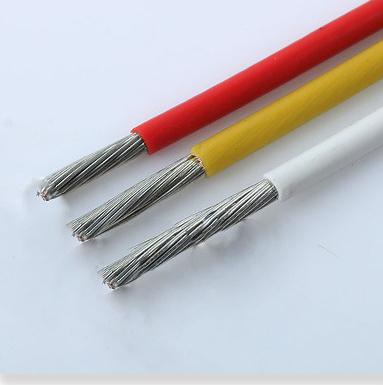Polymer-based cables play a crucial role in electrical and electronic systems, with various types available to meet different requirements. Two common options are PTFE (Polytetrafluoroethylene) and ETFE (Ethylene Tetrafluoroethylene) cables. When it comes to safety, both materials offer distinct advantages, but the choice between them depends on the specific application. In this article, we will explore the safety aspects of PTFE and ETFE cables, as well as their key applications.
PTFE Cables:
1. PTFE, a synthetic fluoropolymer, is renowned for its remarkable thermal and chemical resistance properties. PTFE cables have a solid reputation for safety in various applications, primarily due to the following features:
2. Heat Resistance: PTFE can withstand extreme temperatures, making it suitable for applications where heat is a concern. PTFE cables can operate efficiently within a temperature range of -200°C to 260°C, making them ideal for demanding environments such as aerospace and industrial settings.
3. Chemical Resistance: PTFE is highly resistant to chemicals and solvents. It does not degrade when exposed to most corrosive substances, which is crucial for safety in chemical processing and laboratory equipment.
4. Electrical Insulation: PTFE is an excellent electrical insulator, preventing the risk of short circuits and electrical fires. This property is vital for safety in electrical and electronic applications.
5. Low Flammability: PTFE is inherently less flammable than many other materials, which enhances safety in fire-prone environments.
6. Minimal Smoke Emission: In case of a fire, PTFE cables produce very little smoke, reducing potential health hazards during emergencies.
However, PTFE cables also have some limitations, such as their relatively high cost and limited flexibility, which may restrict their use in certain applications.

ETFE Cables:
ETFE, another fluoropolymer, is valued for its unique combination of properties, which makes it a safe choice for specific applications:
Mechanical Strength: ETFE is known for its exceptional mechanical strength, offering robust protection against physical damage and abrasion. This makes it suitable for outdoor and high-impact applications.
UV Resistance: ETFE has excellent UV resistance, ensuring the cable's safety and longevity in outdoor settings. This is crucial for applications like solar panels and outdoor lighting.
Lightweight: ETFE cables are significantly lighter than PTFE cables, making them easier to handle and install. This feature can enhance safety during cable installation.
Wide Temperature Range: ETFE can operate effectively in a temperature range of -200°C to 150°C, making it suitable for a variety of applications.
Cost-Effective: ETFE cables are generally more cost-effective than PTFE cables, making them a preferred choice for projects with budget constraints.
Applications and Safety Considerations:
Aerospace and Industrial Settings: PTFE cables are commonly used in aerospace and industrial environments where extreme temperatures and chemical resistance are crucial for safety. These cables ensure the safe operation of critical equipment.
Medical Devices and Laboratories: PTFE's biocompatibility and chemical resistance make it an ideal choice for medical devices and laboratory equipment, ensuring patient and operator safety.
Outdoor and Solar Applications: ETFE cables are preferred in outdoor and solar applications where UV resistance and lightweight design enhance safety and long-term performance.
Renewable Energy: ETFE cables are used in renewable energy systems, including solar panels and wind turbines, ensuring safe and reliable power generation in various environmental conditions.
Automotive and Transportation: Both PTFE and ETFE cables are utilized in the automotive industry, providing safety in vehicles through their high-temperature resistance, electrical insulation, and mechanical strength.
Conclusion:
The safety of PTFE and ETFE cables depends on the specific requirements of the application. PTFE cables excel in extreme temperature and chemical resistance, making them the safer choice in aerospace, industrial, and laboratory settings. On the other hand, ETFE cables are preferred for outdoor applications, solar panels, and situations where mechanical strength and UV resistance are critical. Selecting the right cable material is essential to ensure the safety and effectiveness of any electrical or electronic system.


